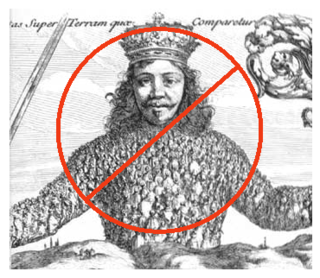Popularizing Arrow’s Theorem II
Arnold Kling is not satisfied with Tyler’s popularization of Arrow’s impossibility theorem asking (in the comments) “what exactly did Arrow show was impossible?” Here is my attempt.
- Andy walks into an ice-cream shop and seeing that they have chocolate, strawberry and vanilla, orders chocolate. Before the vendor has a chance to scoop the ice cream she says, “Sorry, we are out of strawberry.” “In that case,” Andy says, “I’ll have vanilla.” Strange right? Yet however strange we might think this behavior is for Andy it is routine when groups make choices (just substitute Bush, Nader, and Gore for chocolate, strawberry and vanilla.) (Failure of IIA.)
- Andy likes sprinkles on his ice cream. Andy walks into the ice-cream shop and seeing that they have chocolate, strawberry and vanilla chooses chocolate. Before the vendor has a chance to scoop the ice cream she says “Today, chocolate comes with free sprinkles.” “In that case,” Andy says, “I’ll have vanilla.” Strange right? Yet once again it is easy to show that improving an option can result in a group rejecting that option (n.b. no psychology is involved in this result). (Failure of positive association.)
- Andy walks into a supermarket and is offered apples or bananas and chooses apples. Andy is then offered bananas or coconuts and chooses bananas. Andy is then offered apples or coconuts and Andy chooses coconuts. (A>B, B>C but C>A). Strange right? Not only is this strange, if Andy has preferences like this the supermarket can take all his money with a money pump. Once again, however, it is quite possible for groups to cycle in just this way even if every individual in the group has perfectly normal (transitive) preferences. (Failure of transitivity).
 Paradoxes such as the above have been known for centuries. What Arrow showed is that no decision mechanism can eliminate all of these types of paradoxes. (n.b. Arrow’s theorem actually applies to any mechanism for aggregating any rankings not just voting and not just preferences.) We can tamp down some paradoxes but only at the expense of creating others (or eliminating democracy altogether.)
Paradoxes such as the above have been known for centuries. What Arrow showed is that no decision mechanism can eliminate all of these types of paradoxes. (n.b. Arrow’s theorem actually applies to any mechanism for aggregating any rankings not just voting and not just preferences.) We can tamp down some paradoxes but only at the expense of creating others (or eliminating democracy altogether.)
More generally, what Arrow showed is that group choice (aggregation) is not like individual choice.
Suppose that a person is rational and that we observe their choices. After some time we will come to understand their choices in terms of their underlying preferences (assume stability–this is a thought experiment). We will be able to say, “Ah, I see what this person wants. I understand now why they are choosing in the way that they do. If I were them, I would choose in the same way.”
Arrow showed that when a group chooses, there are no underlying preferences to uncover–not even in theory. In one sense, the theorem is trivial. We know or should always have known that a group doesn’t have preferences anymore than a group smiles. What Arrow showed, however, is that without invoking special cases we can’t even rationalize group choices as if leviathan had preferences. Put differently, the only leviathan that rationalizes group choice has the preferences of a madman.